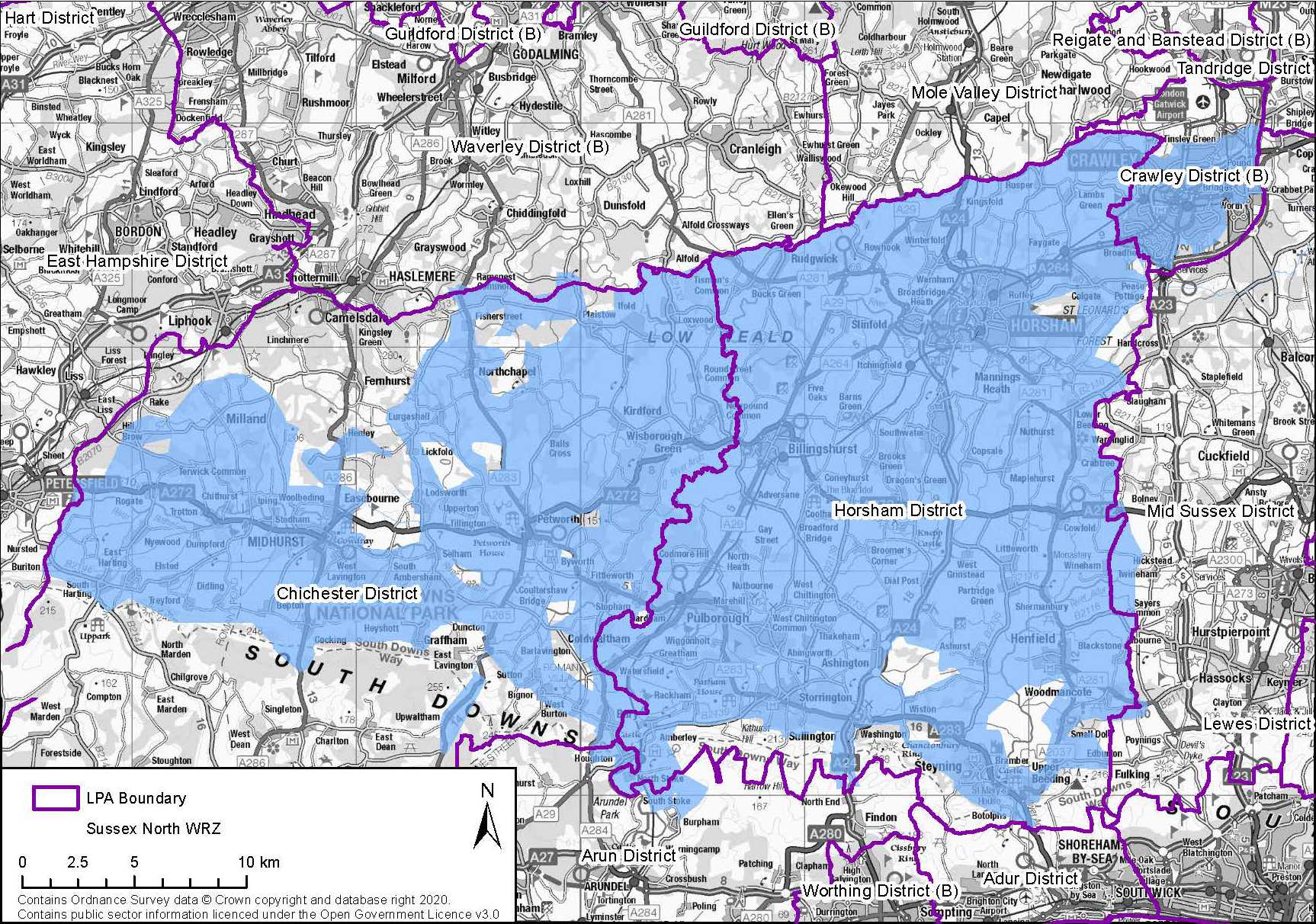Horsham, Chichester and Crawley Districts pause the grant of planning permissions following a new position statement from Natural England on the issue of the Sussex North Water Supply Zone
Following recent caselaw1, Natural England is in the process of reviewing potential effects on international designations, namely Special Protection Areas (SPAs), Special Areas of Conservation (SACs) and Ramsars. As part of this process they have identified that due to groundwater abstraction within the Sussex North Water Supply Zone, it cannot be concluded, with certainty, that new development will have no adverse effect on the integrity of the Arun Valley SAC / SPA / Ramsar.
The Arun Valley SAC interest feature is the Lesser Whirlpool Ramshorn Snail Aniscus vorticulus which occurs in unpolluted, calcareous waters in marsh drains with a dense aquatic flora. It favours ditches with a diverse flora but little emergent vegetation. The Arun Valley SPA is designated for its wintering Bewick Swan population and its use by over 20,000 waterfowl, while the Ramsar is designated for its wetland interest in the form of its invertebrate, aquatic flora and wintering wildfowl populations.
Water extraction points currently lie in sensitive locations in the Arun Valley including within Amberley Wild Brooks Site of Special Scientific Interest (SSSI), Pulborough Brooks SSSI and Arun Valley SAC / SPA / Ramsar. Natural England has advised that where an existing effect is known, and these designations are currently failing their conservation objectives, new development must not add to this impact.
Natural England has advised that one way of avoiding an effect on the designations is for new development to demonstrate water neutrality i.e. that the use of water in the supply area post-development is no greater than it was pre-development. Clearly this is a challenging prospect and this is acknowledged by Natural England who recognise that a strategic solution is required. To this end they are working with the affected local authorities to bring forward a water neutrality strategy for the area. As the securing of water neutrality is a matter which needs to be resolved at a strategic level Natural England is working with the relevant authorities and the water company to achieve this. In light of this, Natural England will not be engaging with individual planning applications whilst the strategy is evolving.
Indeed, notwithstanding that the strategic solution will take some time to put in place, Natural England has advised the affected local authorities that in the interim planning applications should be placed on hold and await its completion. This has significant implications for the delivery of development and in particular much needed housing.
Natural England further advises that any applications which are considered critical and must proceed in the absence of a strategic solution must demonstrate water neutrality. This will be equally challenging to achieve and would likely be most readily delivered by a combination of a) the use of water efficiency measures within new developments and b) offsetting, to bring forward water efficiency improvements elsewhere such as within existing development e.g. within Council owned housing stock.
Follow Aspect Ecology on LinkedIn for all our latest news LinkedIn Page

Reference
1 Case C-323/17 People over wind and Sweetman. Ruling of CJEU (often referred to as Sweetman II) and Coöperatie Mobilisation for the Environment and Vereniging Leefmilieu Case C-293/17 (often referred to as the Dutch Nitrogen cases)

